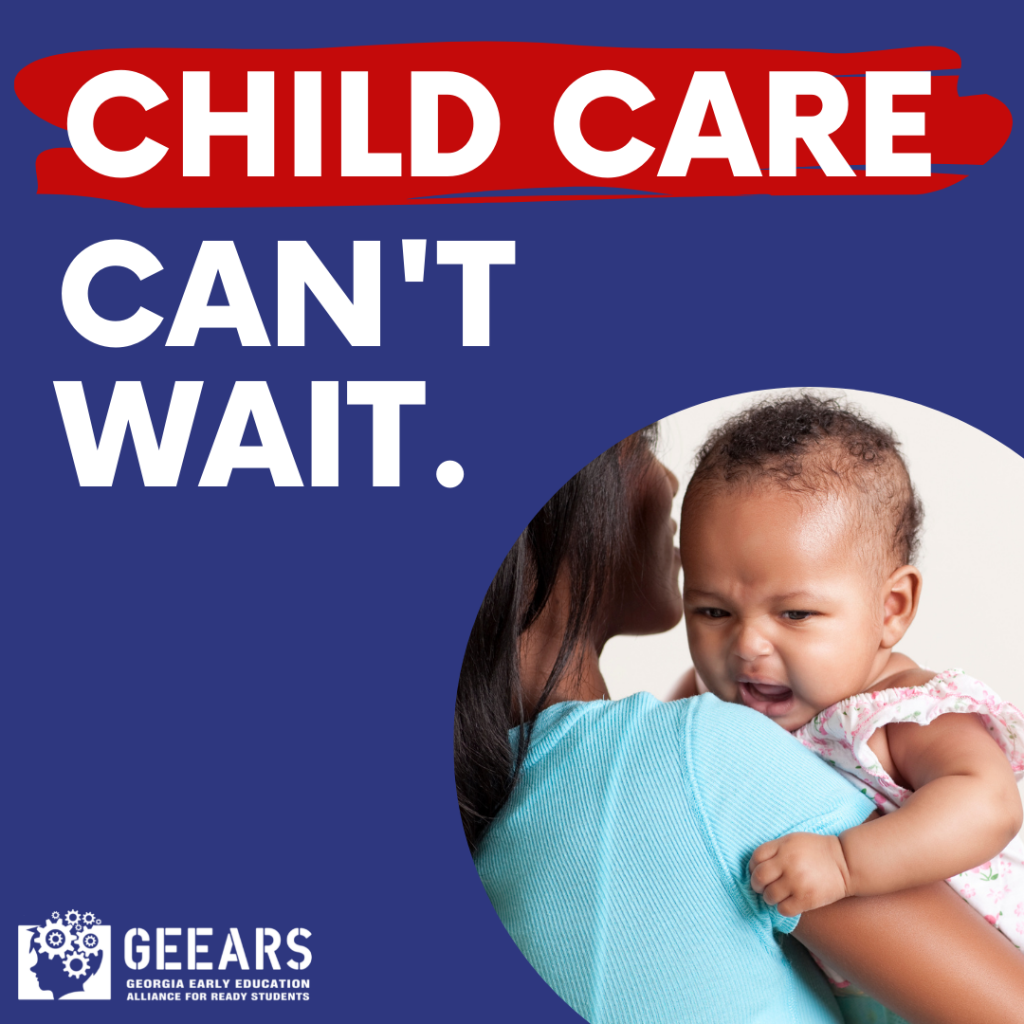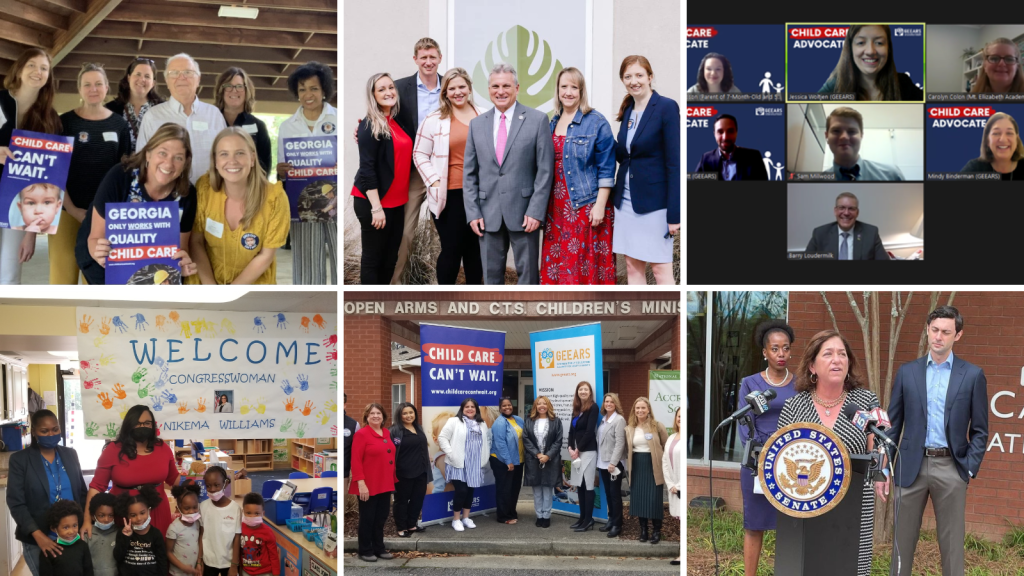Child Care Can’t Wait: Georgia Leaders Must Take Action

By Mindy Binderman
When the reconciliation package made its way through the House in November, it contained a $400 billion investment in early childhood education. We felt so hopeful at that time.
But the reconciliation package (now known as the Inflation Reduction Act or IRA) passed the Senate on Sunday with these critical funds cut completely. We know you’re deflated, as we are, by the loss of this tremendous opportunity.
Though child care’s initial inclusion in the package was a fleeting win, it still reflected an important truth—when you, the GEEARS community and thousands of fellow advocates across the country, shared your stories with policymakers, they listened.
When we published the powerful accounts of parents, including a Newton County mother who confided that navigating child care during the pandemic made it “scary to want to go to work,” they listened.
When GEEARS exhorted our community to let our representatives know that child care can’t wait, more than 500 of you stepped up with letters, calls, and over 50 meetings with representatives. And you were heard.
This setback means we can’t stop lifting our voices. It’s also given us a roadmap for our advocacy moving forward.
Excising families and early childhood educators from the reconciliation package makes no financial sense. Let’s remember, the bill is called The Inflation Reduction Act. And yet, it doesn’t address one of the biggest expenses many working families face—child care.
The average yearly infant child care fees cost more than in-state tuition at a four-year public college and child care costs are rising faster than the rate of other goods and services. Significant investments to increase access to early childhood education would lower costs for families and, according to economists, take the edge off inflation by improving parents’ labor force participation and productivity. This should have made child care a natural, fiscally logical part of the IRA.
Of course, struggling families aren’t the only consideration in the economy of child care. Early childhood educators are among the lowest-paid workers in every state. This despite the fact that their work is difficult, complex, and essential to children’s learning and development. National data shows that, while other sectors have recovered from the pandemic, the child care workforce is still suffering significant shortages because lack of support is driving educators from the field. To make matters worse, federal pandemic relief funding of more than $2 billion, which has been a historic and critical lifeline for Georgia child care providers, will end by 2024.
Our current child care and early learning system simply does not meet the needs of Georgia families and businesses and this holds our long-term economic growth back. So, we must continue to share our stories, to meet with our representatives, to write letters and make calls.
As the House considers (and likely passes) the reconciliation package this week, we urge you to reach out to your Congressional members using our action alert. Express your frustration and underscore the urgency with which Congress must address our child care crisis. As our GEEARS-led campaign says, “Child care can’t wait.”
At the same time, we urge every Georgian who is a part of our tremendous child care advocacy community to maintain hope and keep forging ahead. Recognize that the power of our collective voice is moving the needle, even if we were unsuccessful this time. In the last year and a half, we’ve made more progress toward significant, sustainable federal funding for early childhood education than in the last 50 years.
Our fight is not over. We will continue to advocate for significant, sustainable investment to ensure that every child has access to high-quality early childhood education and that every educator is adequately compensated for the critical work they do.
